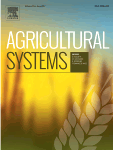Faidherbiaalbida is an agroforestry tree species playing important agroecological and socioeconomic roles in arid and semiarid zones in Africa. For many years, anthropogenic and abiotic stresses were considered as the main threats for the species in West African parkland agroforests. Considerable dieback has recently occurred in F. albida trees of parkland agroforests in central southwestern Niger, and the causes are unknown. The objectives of this study are to (i) investigate the magnitude of dieback of F. albida trees and (ii) assess local community perceptions of the effects of F. albida dieback on crop production. The health status and phenology of 213 F. albida trees were observed in the area where the dieback is occurring. Similarly, a sample of 144 people, 86% of which were farmers, was surveyed. Dieback incidence of F. albida trees was 19%, with mortality of 6%. Large-diameter trees had greater dieback than small-diameter trees. The most affected parts of the tree were the branches at 54% and the trunks at 39%. The populations noted a 33-55% reduction in the yields of major crops. This dieback of F. albida trees poses a serious threat to the survival of rural communities. Further studies can be conducted to identify the cause or cause of the dieback to guide the suitable agroforestry parkland management strategies.
DOI:
https://doi.org/10.1155/2021/8895829
Altmetric score:
Dimensions Citation Count:























